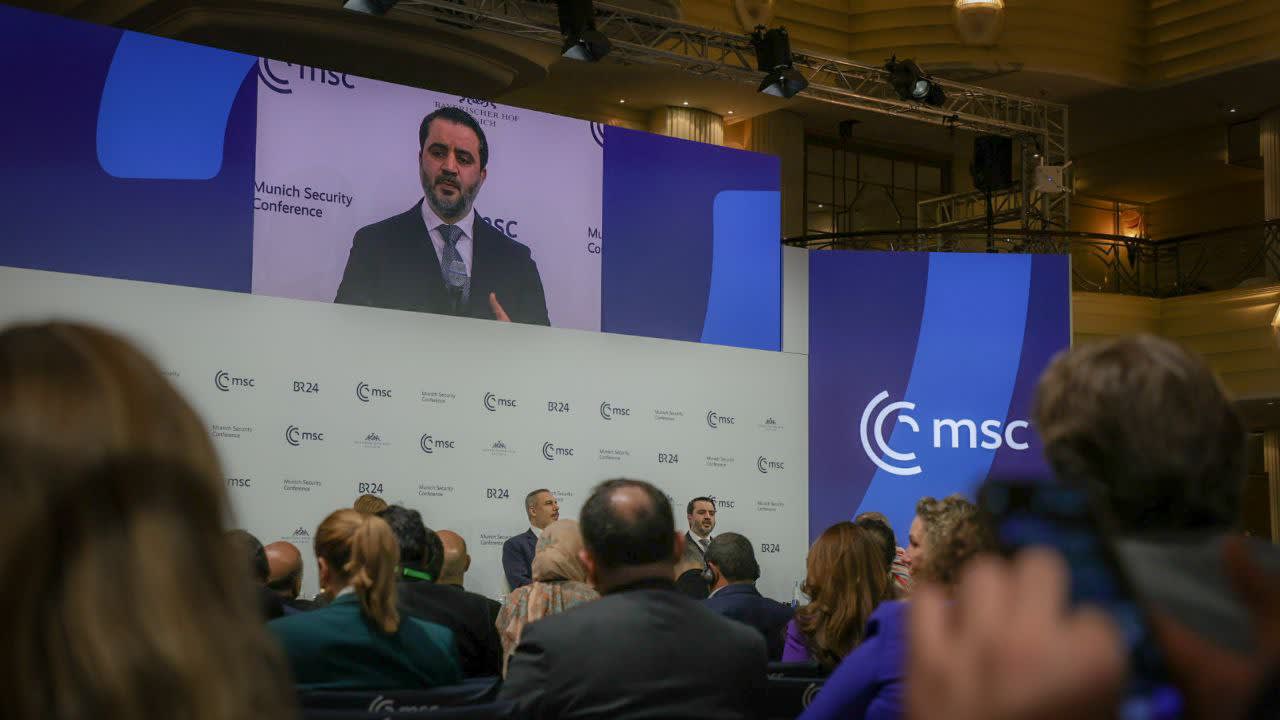Prominent Syrian participation in the Munich Security Conference: Prospects of diplomatic and political transformation.

Syrian Diplomatic Movements: A Step towards Realigning Internationally
The Syrian Foreign Minister met with several European counterparts, including the Foreign Ministers of Germany, Britain, Croatia, and Norway, reflecting Damascus' efforts to rebuild communication bridges with the West. These meetings come within a broader context of reconsidering Syrian-European relations, especially amidst the geopolitical changes in the region, exploring the possibility of easing sanctions or even reopening channels of mutual cooperation.
The Minister also met with influential political figures, such as the head of the International Independent Mechanism for Accountability, the UN High Commissioner for Human Rights, the Director of the Center for Civilians in Conflict, in addition to officials from the United Nations and figures from the Arab League. These meetings shed light on the Syrian government's direction towards reclaiming its role in international institutions, as well as efforts to improve its image regarding human rights and international accountability.
The Syrian Community File in Germany: A New Approach?
On the sidelines of the conference, the Foreign Minister held a meeting with representatives of the Syrian community in Germany, reflecting Damascus' interest in expatriates and their role in the upcoming phase. This meeting may indicate the government's desire to reconnect with the Syrian diaspora, which played a significant role in political and economic dynamics in recent years, with potential future initiatives to attract Syrian expertise abroad.
Meetings with Members of the US Congress: Are We Witnessing the Beginning of a Change in Relations?
One of the highlights of this participation is the meetings held by Minister Al-Shibani with several members of the US Congress, such as Senator James Risch, Senator Dean Shaheen, and Congressman Joe Wilson, along with other prominent political figures. These meetings raise questions about whether there are signs of a shift in American policies towards Damascus, especially amidst regional and international developments, such as Arab rapprochement with Syria and its reintegration into some regional frameworks.
Challenges and Opportunities for Syrian Diplomacy
Despite the active diplomatic engagement witnessed in this Syrian participation, challenges persist. The Western sanctions file, reconstruction, humanitarian conditions, and national reconciliation challenges are all factors that will impact Syria's ability to achieve a genuine diplomatic transformation. Nevertheless, Syria's mere presence in such global security platforms indicates that it has become a party that cannot be ignored in the regional equation.
Conclusion: Are We Witnessing the Beginning of a New Chapter?
Amidst the intensive diplomatic movements at the Munich conference, it appears that Syria is seeking to reshape its international relations, benefiting from regional and international geopolitical changes. However, the success of these efforts will depend on its ability to offer realistic solutions to internal crises and positively engage with international trends, especially concerning humanitarian and political issues.
The coming days will reveal the effectiveness of this strategy and whether it will lead to Syria's return to the international stage as a key player or if it will remain in a phase of political observation and maneuvering.